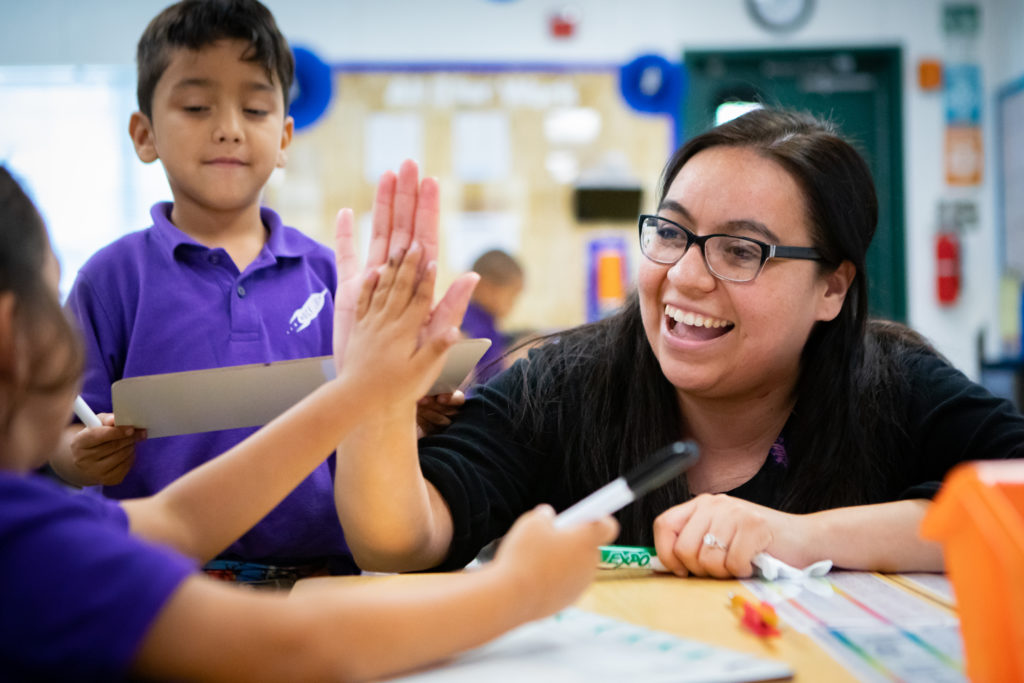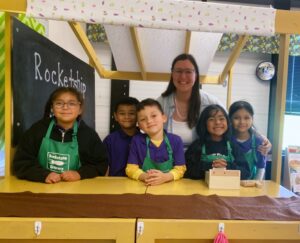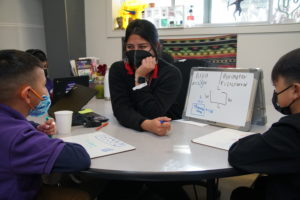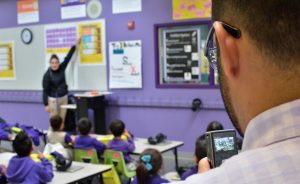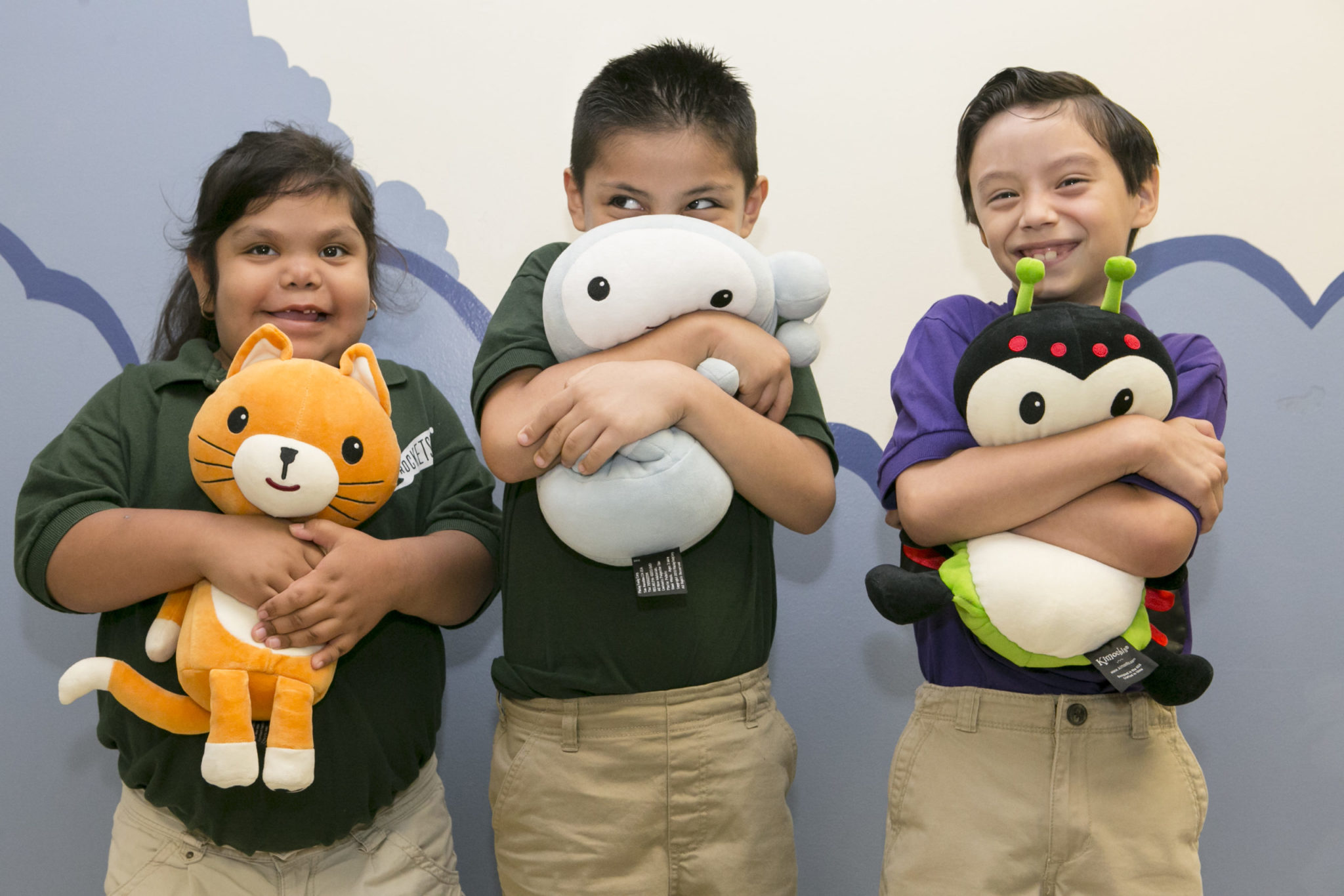
How to Support Children with Special Needs During Distance Learning
By Stephanie Storlie, Integrated Special Education Program Manager of Instruction
By Stephanie Storlie, Integrated Special Education Program Manager of Instruction
We know that the needs of students in special education vary widely from child to child, which can make it difficult to know where to start. But just because it’s difficult, doesn’t mean it isn’t possible. At Rocketship Public Schools, our Integrated Special Education (ISE) specialists ensure that every child has a plan customized to their unique needs and goals. During distance learning, we’ve worked hard with families to ensure that the needs of all learners are met – particularly those with moderate to severe disabilities. So, we wanted to share our learnings with you, and offer some advice for educators who may need extra support during this time.
Compiling Advice from Personal Experience
During Distance Learning, Rocketeers in our ISE program receive Zoom check-ins multiple times per week from their specialist and related service providers to target their goals. For some kids, this means having a quick check-in about grade-level assignments and providing extra coaching or finishing up their classwork. Other students have video sessions where they do a range of activities such as label vocabulary and build language skills or have wellness check-ins with teachers.
Rocketship has created Distance Learning Packets specifically for our students in the ISE programs with more moderate to severe disabilities. These learning kits contain specific supplies like easy grip pencils and safety scissors, as well as many hands-on activities with enough content to keep students engaged for up to 2 or more weeks.
The teachers in our Specialized Inclusion Program (SIP) come together each week to share ideas and problem solve shared challenges. This space has allowed our teachers to better support all students and come together to innovate. So, below you’ll find our top tips for school administrators and teachers.
Advice for School Administrators
1. Provide Teachers (and families) with the space to innovate.
Families and teachers are both the experts on their kids, as well as their content. During this time, it’s helpful to allow teachers to do what they do best, teach. We provide frameworks and suggestions, but then we get out of the way and allow the teachers to talk to each other and to families to figure out what learning should look like for them.
2. Hold time and space for families to talk about what’s tough.
We know that Distance Learning is tough for every family, but raising a child with a disability presents unique challenges. It’s important to give families space to talk about what’s difficult. We’ve found that sometimes we can help families solve these challenges. Other times, we’re simply there to listen and tell them we know they’re doing the very best they can.
Advice to Special Education Teachers
1. Make continuity of care a top priority.
We’re living in a time of major transition and a lack of social connection. So, it’s incredibly important that your top priority is meeting the needs of students and their families. Ensure that any session, instructional group, or academic work has time for a check-in that allows students and families space to share how they’re doing.
2. Meet your students where they are.
Flexibility is the name of the game in distance learning. The “rules of school” are new. Allow your students (and yourself) to do your best in the moment. Remember that some days meeting students where they are means sticking to the session schedule you set out, but some days it means dancing to their favorite song on repeat.
3. Create structure where you can.
Consistency and routine can be helpful during uncertain times. Our Integrated Special Education team has created three student profiles with examples of varying needs. Each profile comes with a corresponding suggested distance learning schedule. You can use these as a model for your own students.
4. If virtual lessons aren’t effective, try creating leveled packets.
Distance learning can be difficult for students with special needs. With this in mind, we compiled leveled learning packets for our students with moderate to severe disabilities who aren’t able to participate in online lessons or programs as much as their peers. On our Distance Learning Launchpad, an educational resource hub created for families and teachers outside of Rocketship, you’ll find a Level 1 and Level 2 packet. These should give students enough material for two weeks. We hope you find them helpful!
5. Build your own community.
Supporting kids and families with disabilities is not an easy job, especially during this time. Build a community both personally and professionally to help you support families. Find a co-teacher who wants to join a check-in just to see one of your students smile. Ask a school leader to call a family you’ve been unable to reach, or find a friend who reminds you you’re doing the best you can.

Curious about Rocketship’s Integrated Special Education Program? Hear what this parent has to say:
“At Rocketship Katelyn has a chance to participate like ‘normal kids’ in ‘general education.’ She gets to sing and dance with all her peers in the morning, not just with autistic kids. She gets a chance to learn what they learn. She gets a chance to eat lunch with them. She gets a chance to go on field trips with them. She gets a chance to go to a science camp with them. She has multiple specialized teachers to help with all her needs. They all work together to re-enforce her learning. They come up with ideas on how to help her. If it doesn’t work, they would scrap it and try something else. The Specialized Inclusion Program here at Rocketship Mosaic is incredible!” – Mr. Doan, parent at Rocketship Mosaic Elementary
Published on December 4, 2020
Read more stories about: Distance Learning, Student Experience.
Back In The Classroom
First Year Teacher? Here are Five Mistakes to Avoid.
Jeremiah David, Paraprofessional, Rocketship Dream Community Prep | November 1, 2024
See what mistakes most first year teachers make and how you can get ahead this school year with some simple tips from a fellow educator.
Read more ⟩3 Classroom Systems New Teachers Swear By
Rocketship Public Schools | Sept. 30, 2024
As a first year teacher, establishing a smooth and productive classroom environment can feel a tad overwhelming. Thankfully, these simple strategies can go a long way.
Read more ⟩How Co-Teacher Collaboration Can Benefit Your Classroom
Featuring Alejandra Chavez, Education Specialist at Rocketship Mosaic Elementary | June 10, 2024
Hear from Ms. Aly about how a small team of educators can make a big difference in student outcomes through thoughtful planning, focused collaboration, and personalized accommodations. Ms. Aly was one of our highest-performing educators in California for the 23-24 school year.
Read more ⟩How to Spark Joy in ESL Classrooms with a Multilingual Learning Clubhouse
Featuring Ms. Amy De La Rosa, Multilingual Specialist, Nashville Northeast Elementary | June 1, 2023
Listen in to an audio interview with Amy De La Rosa, a Multilingual Specialist who has worked as an educator for over 14 years and found an innovative way to help her students learn English in a more accelerated, playful way.
Read more ⟩Supporting Parents of Multilingual Students in Family/Teacher Conferences
Emma Volpe, Rocketship United Academy | June 1, 2022
Get thoughtful insight on how to create a more inclusive family-teacher conference environment.
Read more ⟩5 Ways to Strengthen Relationships in the Classroom
James Cross, Assistant Principal, Rocketship Nashville Northeast Elementary | February 20, 2022
A new age of education calls for a new level of connection. Here are some key tips to strengthen relationships in your classroom this school year.
Read more ⟩5 Ways School Leaders Can Coach and Support Teachers
Eesir Kaur, Director of Professional Development | October 15, 2020
Are you a school leader looking to coach your teachers more effectively? Here's what works for us.
Read more ⟩



